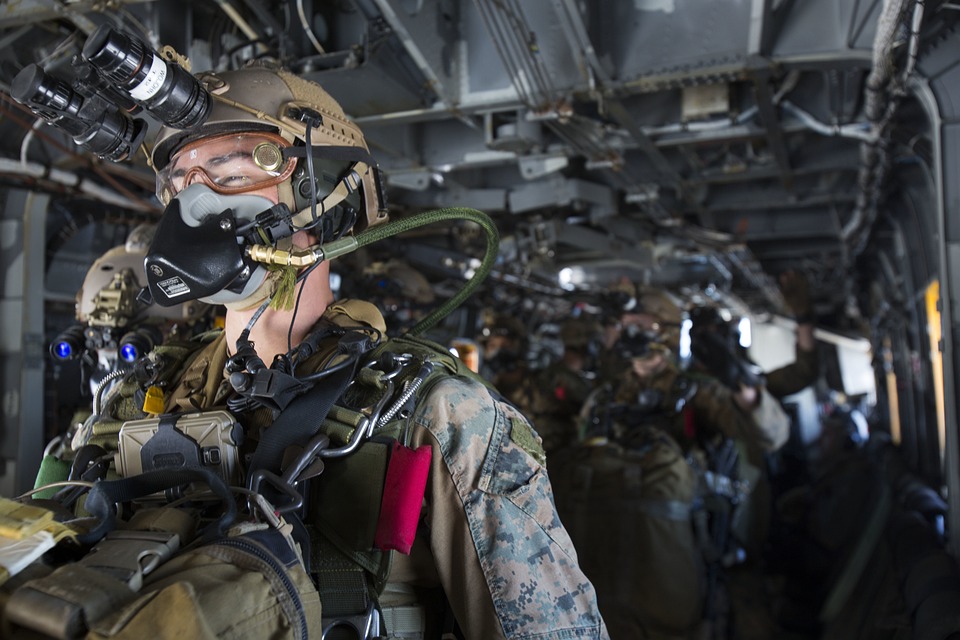In modern warfare, reconnaissance plays a crucial role in gathering vital information about the enemy’s positions, strengths, and intentions. It is often considered the eyes and ears of the military, providing invaluable intelligence that can be used to plan and execute successful military operations. Without thorough reconnaissance, military commanders would be operating in the dark, making decisions without knowing the full picture of the battlefield. In this article, we will explore the importance of reconnaissance in modern warfare and its impact on the outcome of military campaigns.
The Role of Reconnaissance
Reconnaissance is the act of gathering information about the enemy through various means such as patrols, aerial surveillance, and electronic monitoring. This information is then analyzed and used to create a clearer picture of the battlefield, including the enemy’s location, strength, and capabilities. Reconnaissance also helps identify potential threats and vulnerabilities that can be exploited during military operations.
Types of Reconnaissance
There are several types of reconnaissance that are commonly used in modern warfare. These include:
– Ground Reconnaissance: This involves sending infantry units or special forces teams to conduct close-up surveillance of the enemy. They gather information on enemy positions, movements, and defenses, and report back to commanders.
– Aerial Reconnaissance: Aerial reconnaissance involves using aircraft, drones, or satellites to gather intelligence on enemy positions and movements from the air. This provides a broader view of the battlefield and allows for the identification of potential threats and targets.
– Electronic Reconnaissance: Electronic reconnaissance involves intercepting and analyzing enemy communications, radar signals, and other electronic emissions. This information can be used to track enemy movements, identify key targets, and disrupt their communications.
Benefits of Reconnaissance
The importance of reconnaissance in modern warfare cannot be overstated. It provides commanders with critical information that is essential for making informed decisions and planning successful military operations. Some of the key benefits of reconnaissance include:
– Improved Situational Awareness: Reconnaissance provides commanders with a real-time picture of the battlefield, allowing them to assess the enemy’s strength, movements, and intentions. This information helps them make better decisions and react quickly to changing circumstances.
– Target Identification: Reconnaissance helps identify key enemy targets such as command centers, supply depots, and weapon emplacements. This information can be used to plan precision strikes and disrupt enemy operations.
– Force Protection: Reconnaissance allows commanders to identify potential threats and vulnerabilities that could pose a danger to their own forces. By understanding the enemy’s capabilities, commanders can take steps to mitigate risks and protect their troops.
– Tactical Advantage: Reconnaissance provides commanders with the information they need to outmaneuver the enemy and gain a tactical advantage on the battlefield. By knowing the enemy’s positions and intentions, commanders can plan and execute successful military operations.
Challenges in Reconnaissance
While reconnaissance is a critical component of modern warfare, it is not without its challenges. Some of the common challenges faced in reconnaissance operations include:
– Enemy Countermeasures: The enemy may take steps to actively disrupt reconnaissance operations, such as using jamming devices to interfere with electronic surveillance or deploying decoys to mislead reconnaissance teams.
– Limited Resources: Reconnaissance operations require significant resources in terms of personnel, equipment, and time. In a fast-paced battlefield environment, commanders must prioritize reconnaissance efforts to ensure they are focused on key objectives.
– Terrain and Weather Conditions: Reconnaissance operations can be hampered by adverse terrain and weather conditions, such as dense forests, mountainous terrain, or inclement weather. These factors can limit visibility and make it difficult to gather accurate intelligence.
Conclusion
In conclusion, reconnaissance is an essential component of modern warfare that provides commanders with vital intelligence to plan and execute successful military operations. Without reconnaissance, military commanders would be operating blindly, without a clear understanding of the enemy’s positions, strengths, and intentions. By investing in reconnaissance capabilities and prioritizing intelligence gathering, military forces can gain a significant advantage on the battlefield and achieve their objectives more effectively. The importance of reconnaissance in modern warfare cannot be overstated, and it will continue to play a crucial role in shaping the outcome of military campaigns in the future.


